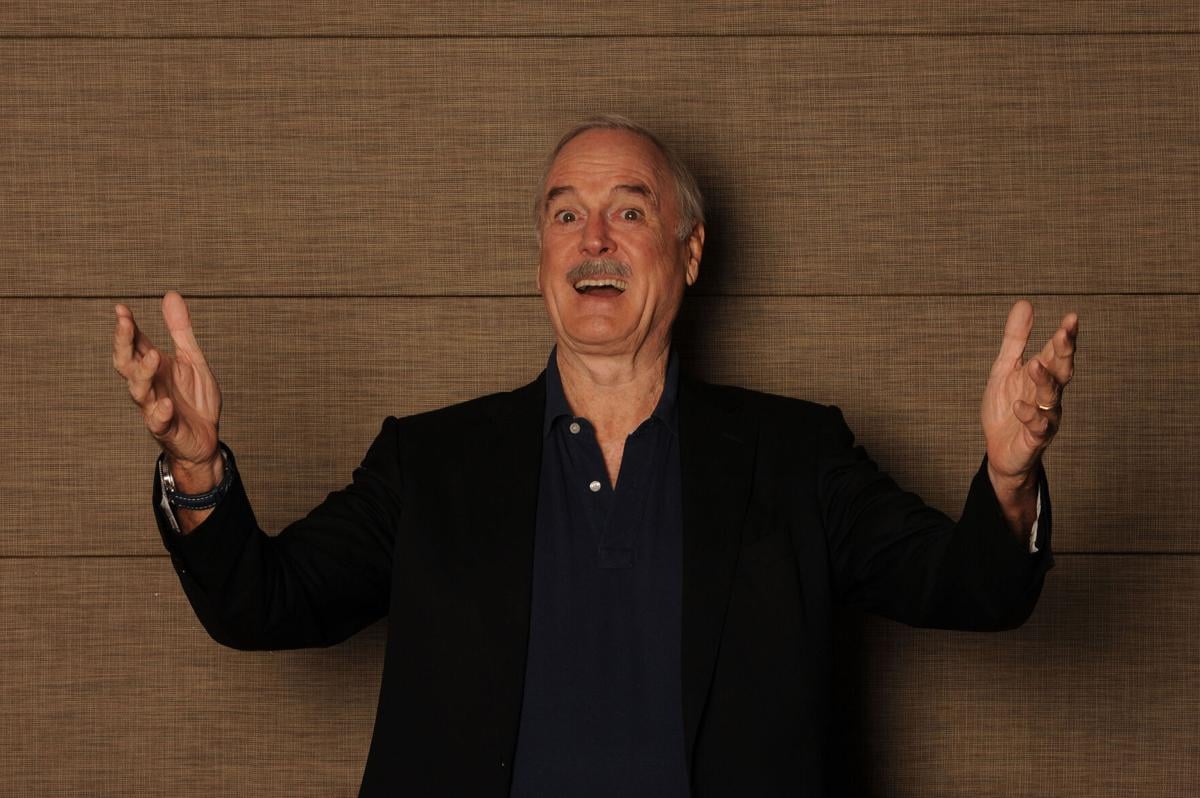John Cleese had a question of his own during a Zoom interview late last month from a Toronto hotel room:
“What does the name mean and why do you call it Tucson when it’s Tuxson?”
Well, uh, hmmmm.
“I cannot answer either of those questions,” you respond and he lets out one of his infectious from-the-depths-of-his-throat laughs. “I want to say that Tucson is a name — I’m making this all up but you can use it — that has something to do with the Tohono O’odham Nation and possibly Father Kino. But that’s a whole other story that I would just be making up.”
And with that one exchange, we kind of proved the point of Cleese’s “Why There Is No Hope” tour.
If you can’t tell a stranger the origin of your hometown’s name, is there really any hope left? (For the record, Tucson was the name given to Sentinel Mountain — “A” Mountain — by the Tohono O’odham because the base of the mountain was darker than the peak. Literally translated, Tucson means “black base,” according to Byrd Granger’s book “Arizona Names: X Marks the Spot.”)
“It’s really about how hopeless our predicament is as far as ever expecting to have a government that is intelligent and kind and sensible and not just worrying about things that don’t matter,” said the 81-year-old founder/writer/actor of the seminal English sketch comedy troupe Monty Python. “I hear one of the reasons (the evacuation of Kabul) was rushed was that they wanted to make the announcement on the anniversary. ... What amused me was even the Taliban didn’t realize how fast they were going to get to Kabul.”
In his show, which comes to Tucson Music Hall on Saturday, Oct. 16, Cleese will make a speech that looks at everything that has happened in the past couple of years through the prism of his signature dark humor. An example: On the 100th anniversary of World War I, in which his father fought, those commemorating the occasion with the respective pomp and circumstance could not say what started the war.
“I think there were nine times the number of people killed as the Second World War but they still don’t know what started it,” he said, and burst into a fit of laughter.
He also sees the irony in a 1970s New York doctors strike that lasted two months and in that time, the death rate went down.
“I think that’s hilarious,” he said. “Get the doctors out of there and everybody starts living longer. It’s just extraordinarily funny.”
After he makes his case for the hopelessness of the world, Cleese will turn the spotlight on the audience, inviting them to ask him questions. Any questions. The cruder and ruder the better, he advised.
His daughter Camilla Cleese, a comedian and writer like her father, will collect the questions.
“She’s really funny,” the proud papa said. “Very naughty and terribly rude to me; it’s outrageous how rude she is.”
Which makes her the perfect co-host of the evening, he said.
Cleese and his daughter spent most of the pandemic lockdown together in a Los Angeles hotel after he was unable to return to England in March 2020. Camilla Cleese lives in LA but Cleese said he moved her into the hotel with him. They spent four months there before he was able to leave.
“I had a little balcony and I had a little squirrel that visited me,” he recalled. “And there were some birds that started hopping into my living room. But then the squirrels started coming in.”
Cleese, who has done several of these shows in recent months, said he is always surprised by the questions.
A woman in Florida asked if she could pose a serious question.
“Of course you can,” he responded.
“Did the queen kill Diana?”
“And there was this dead silence. There were about 2,000 people in the audience and I was the only one laughing,” Cleese said. “In the end I said, ‘Well certainly not with her bare hands.’
“How can you anticipate a question like that? And that’s what is so lovely.”
So about this idea of there being no hope?
“I tell them that it doesn’t matter that there’s no hope. There has never been any hope since the beginning of the world because the history of the world is a history of crime, one group persecuting another,” Cleese said. “We live in a disastrous planet and we ought to face up to the fact that we still have fairly good, enjoyable and worthwhile lives if we would just be nice to a small number of people.”
The annual Tucson folklife festival returns to Tucson to celebrate the diverse communities and people living in and around the Old Pueblo.
Founded in 1974 by Tucson folklorist Jim Griffith and his wife Loma, Tucson Meet Yourself brings thousands of people from different cultures, countries, and ages together to enjoy live music and dancing and feast on some traditional cuisine from all parts of the globe.
This year's 48th annual festival will be smaller than in past years, but will still have a schedule full of entertainment. Video by Jesse Tellez / Arizona Daily Star.





